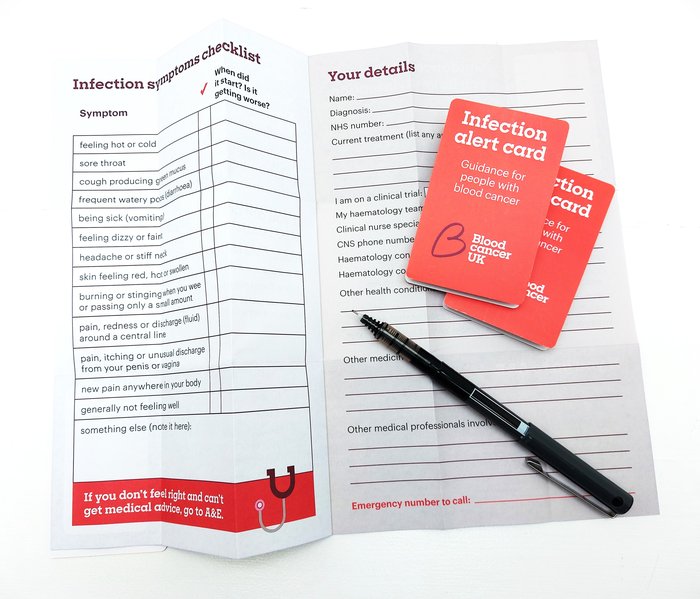Telling other people
It's important to explain to the people closest to you about your risk of infection and how they can help.
Telling family and friends
It’s your choice who to tell about your blood cancer diagnosis. But if your immune system is weak, it may help to tell people you see regularly. They may need to change their behaviour around you, at least for a while.
Being clear about your risk from infection will help people understand what they can do to help. For example,
- They may need to stay away from you if they have a cold or any other bug.
- They may need to do things differently while you’re most at risk, such as chat online, meet you outside or wear a face mask.
- They may need to understand that there are things it’s not sensible for you to do, like going to crowded places.
We have information that will help you explain the situation. Share this link with them: infection information for family and friends.
Or share our short video:
Moderna funded this video but had no input into its content or direction.
Changing behaviour
"It's really important to communicate to people what the risks are and how they can help by changing their behaviour. My friends and family let me know they've got a cold and I decide whether to see them or not."
Jess, diagnosed with Waldenström macroglobulinaemia in 2015

Who can help in an emergency?
If you are at risk from infection, think about who is in the best position to help you in an emergency. Who could take you to hospital or make calls for you if you are sick? This might be your partner, another relative, a friend, a flat mate, a neighbour or a care company.
Share information with these key people about what they need to do if you think you have an infection:
- Send them a link to our page about what to do if you think you have an infection
- Give them printed copies of our infection alert card so they know when to take you to A&E and what to say to the staff. Fill in your personal details before you give them a card, in case you are very poorly and they need to speak for you.
Widen the responsibility
"Make sure there's not just one person to rely on in an emergency, if that's an option, so that the responsibility is spread a little bit wider. Because your closest person will suffer from the impact of infection on their life as well."
Mat, diagnosed with myeloma in 2017

Telling work
If you are working, you may want to tell your employer that you are at higher risk than other people from common illnesses like colds, flu, covid and tummy bugs. You may also want to discuss ways your employer can help protect you.
Blood cancer is classed as a disability in law, so you do have rights. You can ask for reasonable adjustments to make things safer for you. These include things like working from home more often, commuting at less busy times, changing your role or the environment.
See our money and work page for more information about reasonable adjustments and your rights at work.
Talk to your hospital team or GP about the work you do and how you can avoid infection. You can also call our support line to talk things through.
Here is a template you can use to start conversation with your manager about possible adjustments:

Our free infection alert cards can help
Our pocket-sized infection alert card contains essential information to share with your family and friends including:
- a checklist of infection symptoms
- guidance on what to do if you have any symptoms
- space to write essential details about your diagnosis and care
- advice on what to say if you need to go to A&E.
Both the cards and postage are free.
Order copies for you and anyone who may be able to help you in an emergency.
